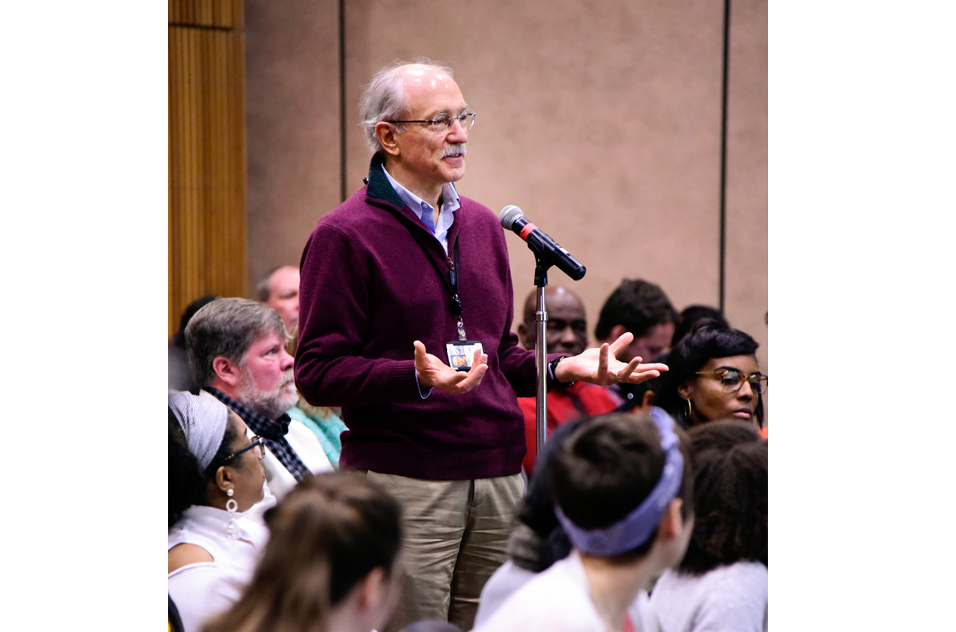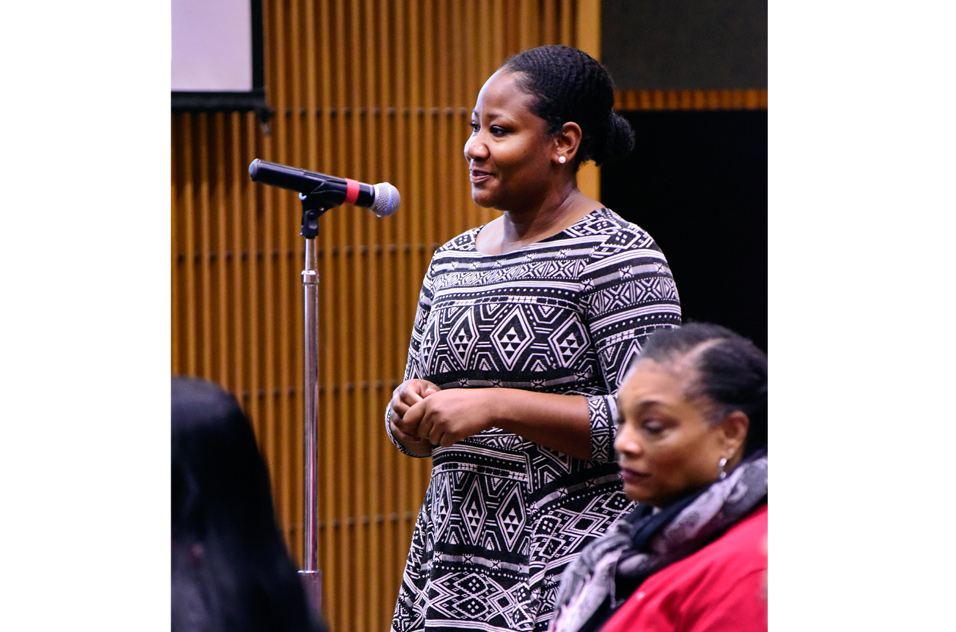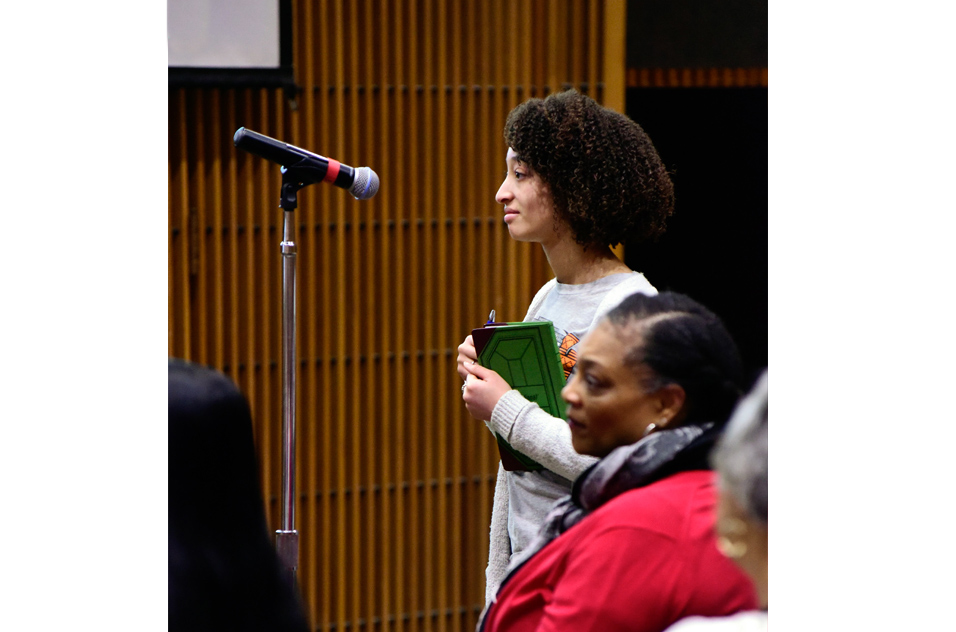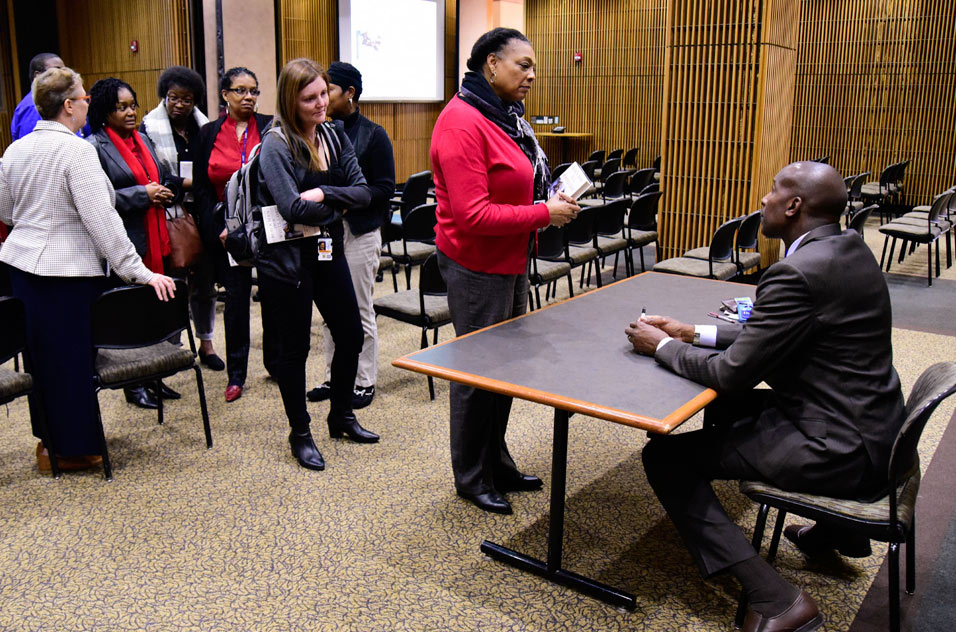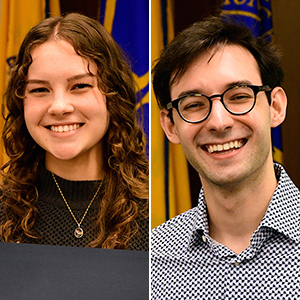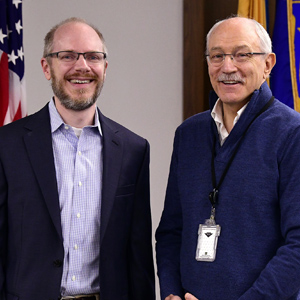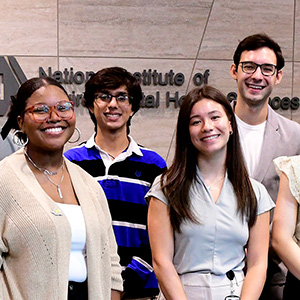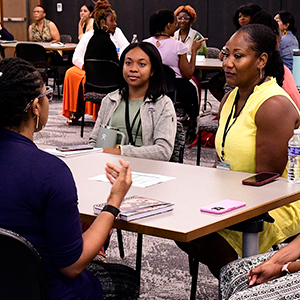The NIEHS Diversity Speaker Series celebrated its first anniversary and Black History Month Feb. 14 with a compelling discussion on race and medicine. It featured physician and author, Damon Tweedy, M.D. associate professor of psychiatry and behavioral sciences at Duke University School of Medicine.
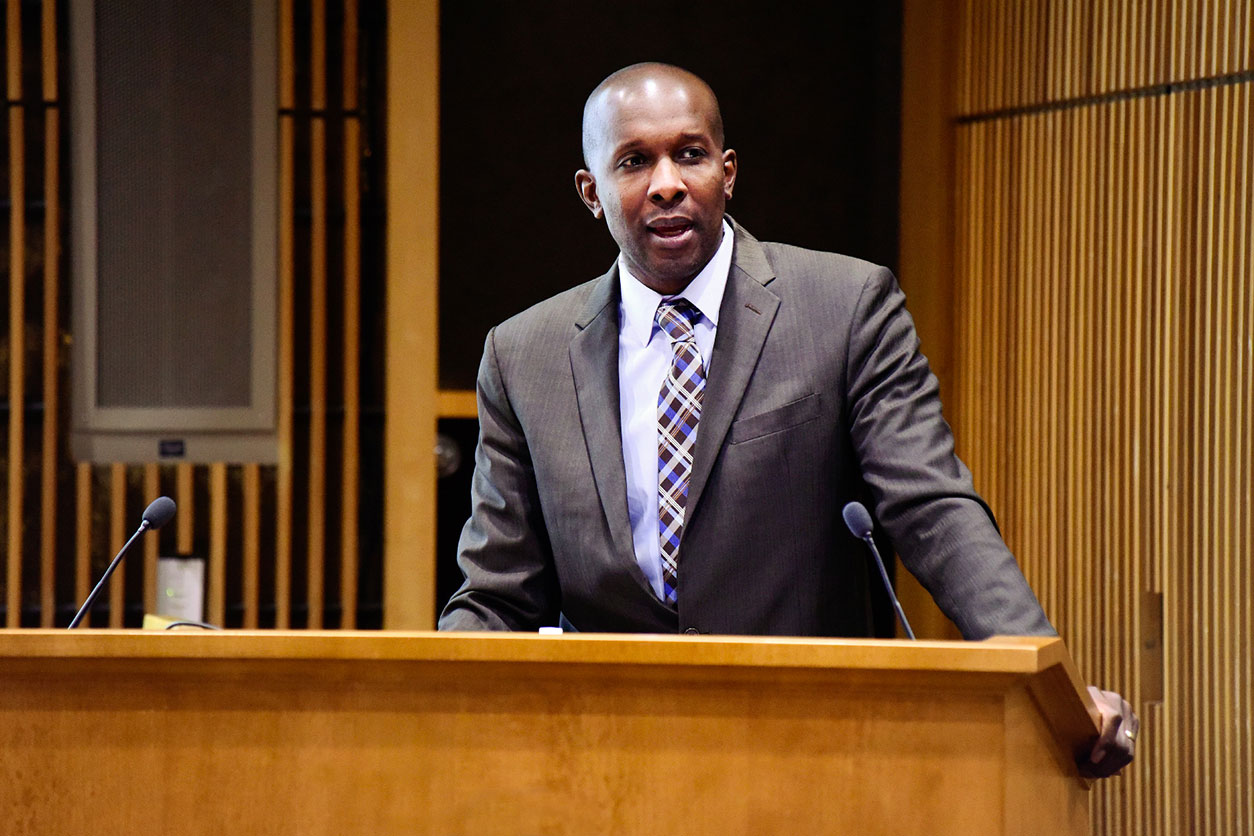 Tweedy graduated from Duke University School of Medicine in 2000, Yale Law School in 2003, and completed his medical and psychiatric training at Duke in 2007. (Photo courtesy of Steve McCaw)
Tweedy graduated from Duke University School of Medicine in 2000, Yale Law School in 2003, and completed his medical and psychiatric training at Duke in 2007. (Photo courtesy of Steve McCaw)NIEHS Deputy Director Rick Woychik, Ph.D., introduced Tweedy. Seminar organizer, Ericka Reid, Ph.D., director of the NIEHS Office of Science Education and Diversity, welcomed the audience.
'I am pleased to have Dr. Tweedy at NIEHS and believe his message is an important one,' Reid said.
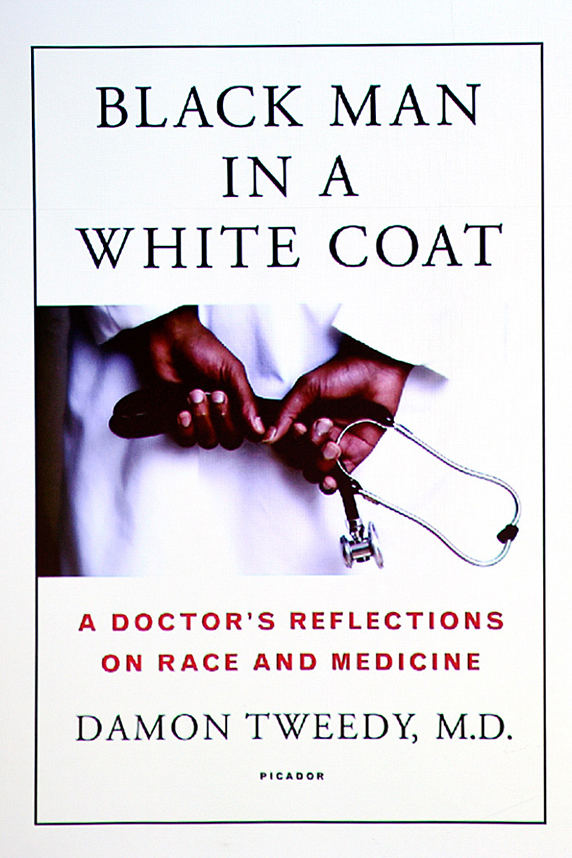 Tweedy’s book was on the New York Times best seller list and was selected by TIME magazine as one of the top 10 nonfiction books of 2015. (Photo courtesy of Steve McCaw)
Tweedy’s book was on the New York Times best seller list and was selected by TIME magazine as one of the top 10 nonfiction books of 2015. (Photo courtesy of Steve McCaw)Tweedy offered stories from his 2015 book, 'Black Man in a White Coat: A Doctor’s Reflections on Race and Medicine,' which wrestles with these issues using his personal experiences. He said as the country continues to debate the issues that divide us, such as blackface and Confederate monuments, he hopes his insights will spur honest exchanges about how people from different backgrounds relate to each other.
STEM encouragement
Growing up in the Washington, D.C. metro area, Tweedy did not intend to become a doctor. His middle school was 98 percent African-American, and few people in his family or neighborhood had gone to college.
His career path changed, however, when he entered eighth grade. His math teacher recognized his fondness for numbers and urged him to take a test for admission to a science, technology, engineering, and mathematics (STEM) magnet high school. After the teacher’s continuous prompting and quick call to Tweedy’s mom, he reluctantly took the test and scored high enough to enroll.
'Once I got in, I could see a different perspective for my life, and what I could possibly be,' Tweedy said.
The good, bad, and awkward
When Tweedy entered Duke Medical School in 1996, he innocently thought that medicine, a discipline based on observation, would be colorblind. If he did well on his exams, he expected to be treated like white doctors.
But people make assumptions about a 6-foot, 6-inch African-American male, he learned. Most people around campus thought he played basketball. It was Duke after all. Tweedy just had to be a member of Coach Mike Krzyzewski’s squad.
This common scenario was just one of many slights Tweedy endured. They ranged from a medical school instructor thinking Tweedy was the janitor who had come to fix the lights, to people on the street thinking he was a threat. Some of the racism was blatant. Tweedy has had white patients complain to nurses, use racial epithets, and demand that someone else treat them.
'I was always a person that wanted to give people the benefit of the doubt, but these situations always seemed to find me,' Tweedy said. 'As the only black doctor, I had to figure out a way to deal with it.'
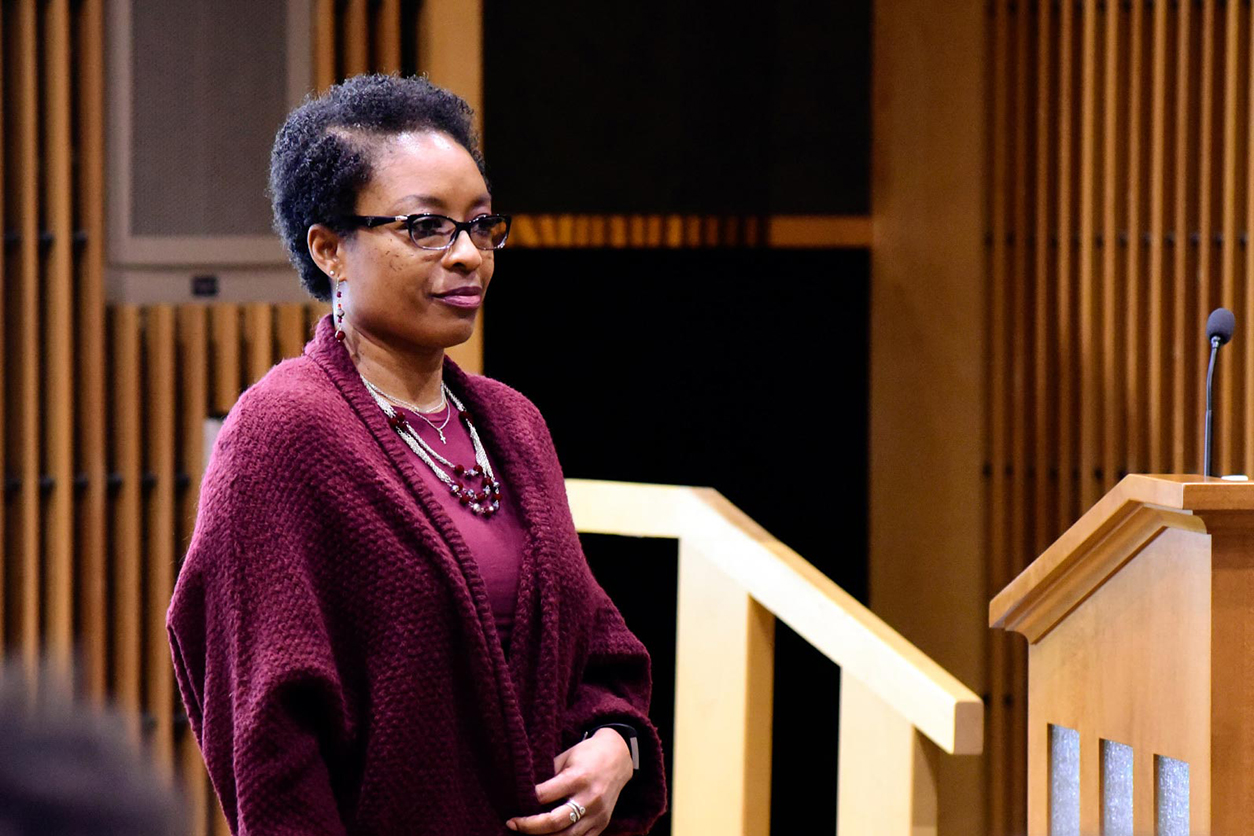 Reid asked about Tweedy’s decision to attend law school, and he replied that he wanted to understand the political and policy issues that shaped big picture questions in medicine. (Photo courtesy of Steve McCaw)
Reid asked about Tweedy’s decision to attend law school, and he replied that he wanted to understand the political and policy issues that shaped big picture questions in medicine. (Photo courtesy of Steve McCaw)Bias in medicine
Tweedy said that although people in medicine may think they are insulated from larger societal forces, they are not. They are human, too, and have biases that are learned. He described a 2018 study that examined doctors’ use of stigmatizing words in patient narratives. When other doctors read the biased text, most said they were less likely to offer treatment to those patients.
Tweedy admitted that he also judged a patient based on his chart before meeting him. The patient history included descriptions that led Tweedy to prepare himself for someone who would be hostile to receiving treatment from an African-American doctor.
The patient was distant at first, but Tweedy kept engaging him until he found an issue both could relate to — playing pool. It began a positive relationship, one in which both parties found common ground and mutual respect. Tweedy said it is an example of how doctors can do better. He hopes other physicians will follow his lead.
NIEHS Diversity Speaker Series
Launched February 2018, the NIEHS Diversity Speaker Series was developed to advance the diversity and inclusion efforts at NIEHS and to further the work of the NIH Office of Equity, Diversity, and Inclusion.
Other lecturers have included inaugural speaker Sherilynn Black, Ph.D., associate vice provost for faculty advancement at Duke University, and Alfonso Latoni, Ph.D., head of the NIEHS Scientific Review Branch, in honor of Hispanic and Latino American culture.





